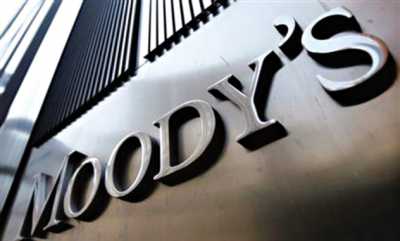World’s top banks hit with Moody’s downgrade
 A Moody’s sign on the 7 World Trade Center tower is photographed in New York in this file photo. Photo afP
A Moody’s sign on the 7 World Trade Center tower is photographed in New York in this file photo. Photo afP
WASHINGTON: The health of 15 of the world’s largest financial institutions has been called into serious question after Moody’s downgraded their credit ratings, citing risk exposure and the eurozone crisis.
Some of the biggest names in banking—including Goldman Sachs, Barclays, Citigroup, HSBC and Deutsche Bank—saw their ratings slashed Thursday, spelling increased investor scrutiny and potentially higher borrowing costs.
Moody’s said, in essence, that the banks risked massive losses and that they were exposed to the roiling financial crisis and to each other.
“All of the banks affected by today’s actions have significant exposure to the volatility and risk of outsized losses inherent to capital markets activities,” said Greg Bauer, Moody’s global banking managing.
In total four firms were downgraded by one notch, 10 firms by two notches and one by three notches.
Holding companies of a number of the same banks were also downgraded.
Credit Suisse faced the largest downgrade, with its rating slashed three levels from Aa1 to A1.
Under-pressure US banking giant Morgan Stanley was seen as winning a partial victory by only receiving a two-notch downgrade.
Morgan Stanley welcomed the partial reprieve, but nevertheless questioned the Moody’s decision.
“While Moody’s revised ratings are better than its initial guidance of up to three notches, we believe the ratings still do not fully reflect the key strategic actions we have taken in recent years,” it said in a statement.
Royal Bank of Scotland, which was also downgraded, called the ratings change “backward-looking,” saying it did not recognize the “substantial improvements the group has made to its balance sheet, funding and risk profile.”
Citigroup was similarly unimpressed with the Moody’s verdict.
“Citi strongly disagrees with Moody’s analysis of the banking industry and firmly believes its downgrade of Citi is arbitrary and completely unwarranted.”
In a jab Citi added that “sophisticated” investors no longer depend heavily on ratings agencies to assess credit risk.
Ratings agencies like Moody’s were pilloried for failing to predict the cataclysm that engulfed Wall Street and the world beginning in 2008, and Thursday’s move was part of a sector-wide effort to tighten up ratings.
But even so, the swathe of downgrades amounts to a fresh indictment of the health of the global financial system, which has seen wave after wave of crisis over the last four years.
Since the sub-prime crisis banks have seen the value of their assets slump and their access to capital shrink, which has repeatedly forced taxpayers and central banks to step in to provide liquidity.
Many governments have been forced to provide bailouts, straining already precarious public finances.
On Thursday Spain became the latest to signal a bank bailout.
Madrid announced that its crisis-torn banks need up to 62 billion euros ($78 billion) to survive. It is expected to formally ask its eurozone partners for the cash on Friday.
The 15 banks downgraded were: Bank of America, Barclays, Citigroup, Credit Suisse, Goldman Sachs, HSBC, JPMorgan Chase, Morgan Stanley, Royal Bank of Scotland, BNP Paribas, Credit Agricole, Deutsche Bank, Royal Bank of Canada, Societe Generale and UBS.
Moody’s began its review of the banks in February, and the move was widely anticipated, helping to send the Dow Jones Industrial Average sharply lower on Thursday. In a separate announcement, Moody’s also downgraded the long-term debt rating of Lloyds TSB by one notch.
The British bank said the change would have “limited impact on our funding costs and market capacity,” pointing out that its short-term funding rating remained unchanged.
The Daily Sun/Bangladesh/ 23th June 2012
Other Posts
- Janata Bank opens branch in N’ganj
- Rental power benefits vested groups
- Balance-of-payment deficit easesShortfall comes down to $106m in April from $419m in March
- Oil prices up in Asia
- IMF says euro banking union needed now
- World Bank, ADB unlikely to support power generation with imported coal
- World Bank to boost access to clean energy in developing countries
- Banking Division utilises 19pc ADP this FYMinistry asks for speeding up spending




Comments